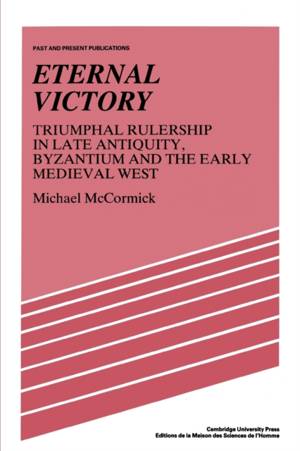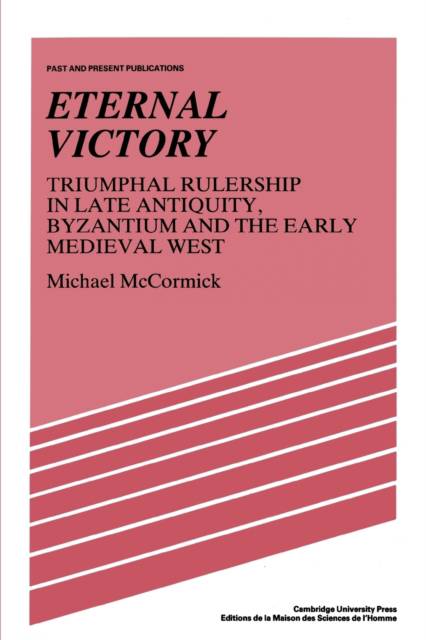
Je cadeautjes zeker op tijd in huis hebben voor de feestdagen? Kom langs in onze winkels en vind het perfecte geschenk!
- Afhalen na 1 uur in een winkel met voorraad
- Gratis thuislevering in België vanaf € 30
- Ruim aanbod met 7 miljoen producten
Je cadeautjes zeker op tijd in huis hebben voor de feestdagen? Kom langs in onze winkels en vind het perfecte geschenk!
- Afhalen na 1 uur in een winkel met voorraad
- Gratis thuislevering in België vanaf € 30
- Ruim aanbod met 7 miljoen producten
Zoeken
Eternal Victory
Triumphal Rulership in Late Antiquity, Byzantium and the Early Medieval West
Michael McCormick
€ 60,95
+ 121 punten
Omschrijving
As the Roman empire declined and 'fell', contemporary glorification of the emperor's triumphal rulership reached new heights, strewing traces of the empire's perennial victory across the physical and mental landscape of late antiquity. In this, the first comprehensive study of how a great imperial ceremony actually developed and how it influenced both the eastern and western heirs to the Roman legacy, the Roman triumph's resurgence and afterlife is documented from the Tetrarchy down to the end of the Macedonian dynasty in Byzantium and down to Charlemagne's successors in the early medieval West. This perspective shows that celebrations of the ruler's victory experienced unceasing change in ritual form and content and that these changes mirrored broader trends in the development of society and the monarchy. At the same time, it casts new light on the late Roman origins of the trappings of early medieval kingship. Far from the imperial capital, the cult of triumphal rulership permeated local elites, as commanders in the provinces imitated the supreme victor by staging triumphs of their own, and the new Germanic kings followed suit. Classicists, medievalists, Byzantinists, specialists of art and ritual will find here new data and approaches to a central problem in the transformation of the Roman empire which culminated in the new civilization of Byzantium and the Germanic Kingdoms.
Specificaties
Betrokkenen
- Auteur(s):
- Uitgeverij:
Inhoud
- Aantal bladzijden:
- 472
- Taal:
- Engels
- Reeks:
Eigenschappen
- Productcode (EAN):
- 9780521386593
- Verschijningsdatum:
- 29/06/1990
- Uitvoering:
- Paperback
- Formaat:
- Trade paperback (VS)
- Afmetingen:
- 152 mm x 226 mm
- Gewicht:
- 680 g

Alleen bij Standaard Boekhandel
+ 121 punten op je klantenkaart van Standaard Boekhandel
Beoordelingen
We publiceren alleen reviews die voldoen aan de voorwaarden voor reviews. Bekijk onze voorwaarden voor reviews.









